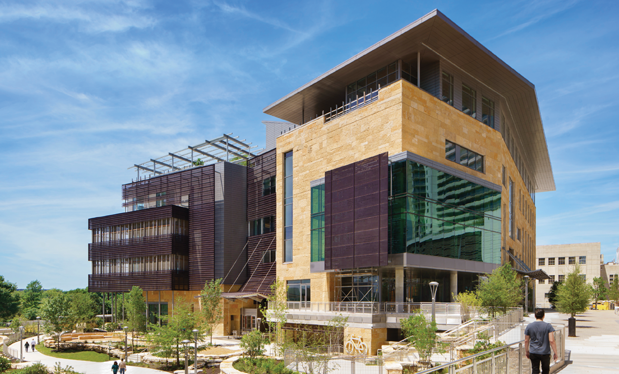This winter has been a whirlwind. The industry completed one of the best NRCA annual conventions and International Roofing Expos® in history. Members are optimistic about 2018 and anxious for spring. There's a good feeling in the air.
Yet there are some troubling signs coming from policymakers in Washington, D.C. At press time, Congress ended a three-day government shutdown that was more about immigration than it was about government spending.
The primary issue now centers around a group of individuals who were brought here illegally by their parents when they were children. The parents entered the U.S. with (and sometimes without) documentation and then chose to stay. In the meantime, their children grew up and, in many ways, experienced life as any other child would growing up in the U.S. They made friends, went to school, learned the language and ultimately turned 18 years old and discovered they were living their lives in limbo.
In an effort to address this group of immigrants and given an absentee Congress on the topic, President Obama issued an Executive Order titled Deferred Action for Childhood Arrivals (DACA) in June 2012. Basically, the order deferred any action by the U.S. government against these people until the order was either rescinded, expired or counteracted upon by Congress or the courts. The order provided temporary, renewable work permits for two years for those who registered. About 800,000 immigrants entered the program.
Many of these individuals have gone on to college; some went directly to work; others serve in the military; but most were like other young people going about their lives. Some of them work for you. And that's the rub: These people, who are now legally able to work, have begun to bring value to their employers and the greater economy. The idea that their status may change is causing alarm in industries that have chronic labor shortages, including the roofing industry.
But these aren't the only immigrants caught in limbo. The U.S. government also has a program that allows immigration on a temporary basis for folks who come from countries that have suffered damage from hurricanes, earthquakes, wars and other catastrophes. Immigrants from El Salvador, Haiti and Honduras come to mind. They were provided with temporary protected status (TPS), and some have worked in the U.S. legally for years. Several NRCA members legally employ this class of immigrants, as well. So what changed?
Late in 2017, President Trump correctly sent the DACA issue back to Congress. He gave Congress until March 2018 to make a determination about this group of people and fix the problem through a real law rather than relying on an Executive Order.
Then, in early January, Trump announced an end to allowing individuals to take advantage of the TPS program if they came from certain countries, most notably El Salvador. However, members of Congress can't agree on what an immigration fix should include for DACA and TPS. Should the solution grant citizenship? Should it provide permanent status without citizenship? Should it call for deportation? Should it encompass extended family? Should programs be expanded for recent childhood arrivals? Should it require more border security and mandatory use of E-verify?
Immigration policy is nuanced and challenging. There are almost as many ideas for reform as there are citizens. The opinion that concerns the roofing industry most is the one that reduces legal immigration by 25 percent or more. A reduction of legal immigration combined with a strict interior enforcement policy likely will lead to a larger black market, underground economy. The way to fix the illegal immigration problem is certainly not by making legal entry more difficult and limited.
To be clear, NRCA supports mandatory E-verify and proper border security. It's the only way to ensure a fair marketplace for labor. However, doing that absent some type of guest worker program will only make the problem worse. This is bad for consumers, contractors and the economy.
So how do we effect change in Washington, D.C., on issues that really matter to the roofing industry? I know one thing for certain: Sitting at home, wringing our hands and complaining won't do it. We need to organize, get educated on the issues, and show up and face our elected officials. We need to tell them our stories. We need to show them we are professionals.
Recently, NRCA and other affiliated roofing industry organizations sent hundreds of roofing industry stakeholders to Washington, D.C. Those folks didn't sit back and complain or wait to do something about important issues. They chose to come. To speak. To be heard. They represented the best of us. Thank you for your sacrifice!
Reid Ribble is NRCA's
CEO.
@NRCA_CEO
This column is part of News + Views. Click here to read additional stories from this section.



